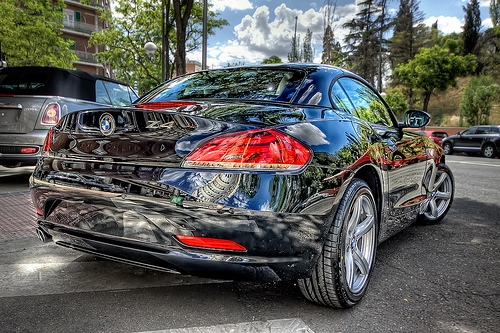
BMW vehicles are generally noted for their dependability and prestige. But tire problems are the most well-known frustrations from this manufacturer. Some issues are caused by assembly failure and have been addressed by the company. But additional complications stem from the BMW's tire design. Despite the added safety of the run-flat design implemented on many models, owners frequently suffer from problems associated with the unusual characteristics of these tires.
Factory malfunctions in tire mounting led to the 2001 recall of the BMW M5 and 740 models. Dangers associated with sudden tire deflation prompted dealers to inspect affected vehicles for any sign of mounting damage. The problems affected 18-inch tires only, thus many cars from the 7 Series product line did not participate in the recall. Free tire replacement was performed in cases where the damage was confirmed.
BMW moved to a run-flat tire design on many of its passenger vehicles in the early 2000s. This type of tire is designed to function even when flat. This benefits owners who have greater flexibility in the event of a tire problem and can drive to a safe location without the time necessary to change into a spare. While these tires do demonstrate this convenience, the majority of BMW tire problems are directly caused by other side-effects of this design.
One symptom of the run-flat tire design is direct damage to the wheel. While the tires are expected to allow mobility despite deflation, "Consumer Reports" notes that subsequent wear on the wheel base may result from the compromised tires. This often leads to replacement of the entire wheel in addition to the tire. This substantially adds to the cost and inconvenience of tire repair.
While traditional tires may often be repaired after a flat, it is recommended that run-flat tires not be re-used. This compromises their convenience, since new run-flats are significantly more expensive. Additionally, they are not easily available, complicating the replacement process. Even in cases where the tire has never gone flat, this tire design often requires replacement much earlier in the car's life, sometimes after only 18,000 miles.
Frequent complaints on consumer report websites point to recurring tire noise throughout the BMW line. The problems often coincide with the run-flat tire design, and the noise may present early in the car's life. The likely cause for the noise is excessive tire wear disproportionate to mileage. While BMW has issued no recalls for the problem, owners report that dealers are accommodating, and many received free tire replacement when noise was confirmed.